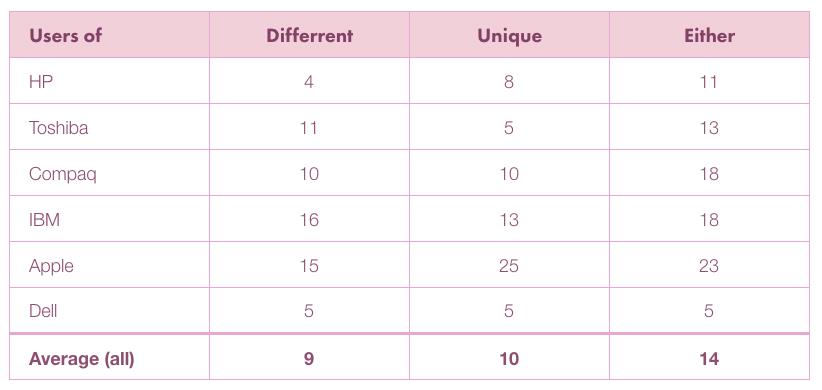
Differentiation vs. distinctiveness, i.e. stand out or be distinctive
Can you be a marketing specialist without knowing Reeves's USP concept? The famous American adman argued that advertising should display a unique and distinct competitive advantage for the consumer. "Stand out or die" practitioner and marketing theorist Jacek Trout is also not one of the niche claims in the industry. But how do these concepts fit in in the light of more recent research?
Marketing practitioners have been aiming for years to build a brand that will be perceived by consumers as significantly different and distinctive from the competition. After all, it is its distinguishing features that will give the consumer a reason to buy, and then loyalty.
I choose a particular brand because it has something that is attractive to me. Something that makes her special. Something that no competition.
Rosser Reeves (on the left) and Jack Trout (on the right)
Classic marketing literature treated this approach as a foundation. If the brand is not unique, seen as significantly different from the competition, if it does not give me a clear reason to buy it, it is doomed to failure. Is this really the case?
Is the Apple brand distinctive for its users?
Researchers from the Australian Ehrenberg-Bass Institute have scientifically proven that differentiation theory is not as effective or relevant as we generally thought. Their research showed that most consumers do not perceive the brands they buy as significantly different from the competition. Despite this, they are still being bought, and many are doing quite well.
Let's take the example of Apple - a company often mentioned as an example of an effective and distinctive brand. It turned out that 77% of apple users do not perceive this brand as unique. Even a different look and operating system is not important. For most, it is a personal computer with a graphical interface, keyboard, supporting e-mail and Office - like any other.

Perception of brand diversity by computer users (United Kingdom). Source: Evidence concerning the importance of perceived brand differentiation , Jenni Romaniuk, Byron Sharp, Andrew Ehrenberg
Despite these not optimistic results, Apple still exists. It would also be difficult to claim that it is a weak brand.
Professors Sharp, Romaniuk and Ehrenberg suggest that if there were differentiation at the brand level, and at the same time each brand would communicate its unique, attractive for a specific target group, we would have many brands with different customer base. It's a very theoretical situation, because reality usually shows something different.

From left: Professor Byron Sharp, Jenni Romaniuk and Andrew Ehrenberg Source: Ehrenberg-Bass Institute for Marketing Science
Of course, brands with different prices go to different consumers. However, those that offer a similar set of attributes are bought by the same people. Netflix subscribers also choose HBO Go. Shoppers at Versace also dress at Gucci. People eating at McDonald's will occasionally choose Burger King.
Researchers do not suggest that classic brand differentiation does not exist or there are no deviations from this rule. Instead, they undermine the huge role and effectiveness of this approach. They question the common opinion (fueled by marketing literature) that we have had on this subject for many years.
Therefore, an important question should be asked. If consumers do not buy brands because they are unique to them (what we thought was the basis for purchase and loyalty), why are brands doing on the market?
Read the full article on Marketing przy Kawie.